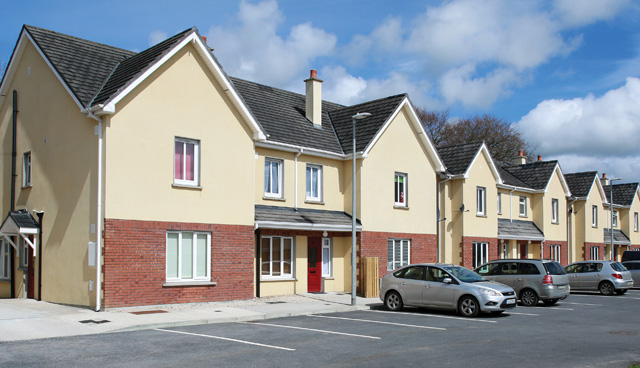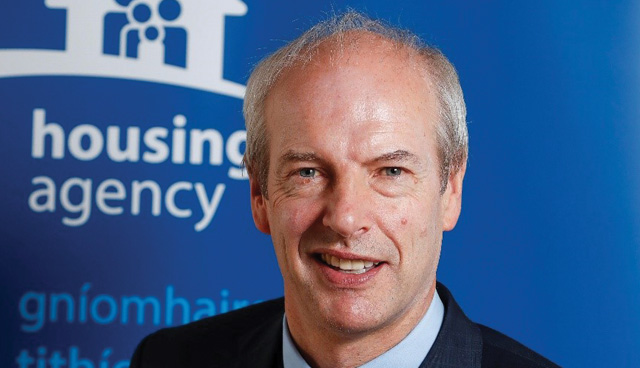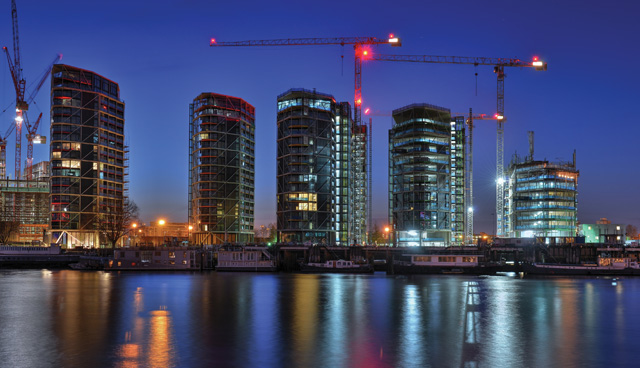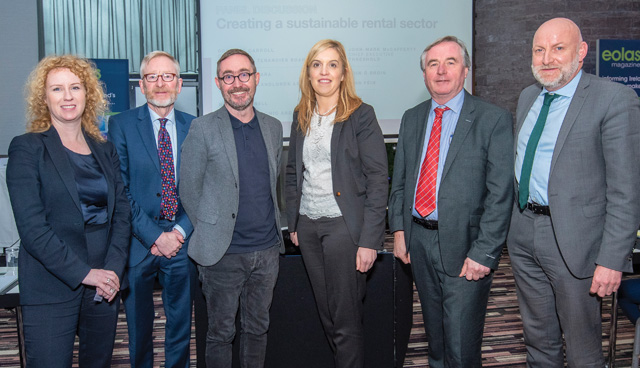
Leading change and doing things differently
17th May 2019
Towards a fully electronic property registration system
17th May 2019A state-led approach to housing

In April the Labour Party introduced a housing motion in Dáil Éireann themed: ‘Building Homes for the Future’ arguing for a shift away from a “market-led approach” to housing.
Debating the motion, Brendan Ryan TD says: “The time for a state-led approach to housing is long overdue and, unfortunately, this Government has driven us further and further towards a market-led approach.
“This has been a disaster. The shift in Government policy in 2016 towards a landlord-led solution to the housing crisis has served to deepen the crisis further and adding needless complexity to a situation that was already very complicated.
“In late 2014 and 2015 as the economy began to improve we were able to secure funding for investment in the building of local authority homes. It was a start, and was only part of the solution, but we did make a start.”
Ryan outlines that a number of social housing schemes came off the shelf and went into development in places like Lusk, Balbriggan, Balrothery, and Ballyboughal, adding: “It was encouraging but it was not to last. Unfortunately, after 2016 the focus shifted to the landlord-led approach that we see now. Some of the projects that got out of the gate in 2014/2015 have been completed in Fingal.
“Some are still under construction, but not many have gotten the go-ahead since 2016. The shift to a landlord-led and developer-led solution to the housing crisis has worsened the housing and homeless crisis immeasurably.
“We are now in a position in which there is no hope for many. Families in hotels, families split up, the hidden homeless still living with parents, crammed into box rooms or getting by due to the generosity of friends. It is scandalous.”
Ryan believes that people now trying to secure social housing in Dublin are forced to navigate a complex administrative procedure, filling out endless forms only to receive a phone number at the end of it for self-accommodation. He continues: “This is demoralising and soul destroying for the people involved. Single homeless men and women have been totally thrown to the wolves due to absurd administration rules laid down by the Dublin Regional Homeless Executive. They cannot avail of B&B accommodation and they cannot self-accommodate.
“The HAP rates available to single people are nowhere near adequate, even if a place can be found. They are forced into city centre hostels, sometimes dangerous or worse still, to have to take to the streets. It is an abhorrent state-of-affairs. There is also inertia in terms of recognising the changing environment of the housing crisis.
“In particular, this is the case for people who are now finding themselves marginally over the income thresholds for qualifying for social housing support. For an average family of two adults and two children, the level currently sits at €38,500 per annum. In cases whereby a household contains three adults and four children, the threshold stands at its highest: €42,000.
“These limits were established in 2011 and have not changed since.”
Affordable housing for all
Labour’s housing policy is based on the premise that a range of State-led measures are needed, including taxes and levies, to strongly motivate those with available land to develop housing on it now, and to eliminate profiteering.
The party has identified how €16 billion can be invested, over five years, to deliver 80,000 plus affordable homes, including traditional council housing and a new form of public housing that would be available to all at an affordable cost.
Labour’s housing policy has over 70 distinct proposals. These include the establishment of a single national State agency, called the National Housing Development Bank. This could be given the powers, the land, the expertise and the money to deliver housing now. It would replace the existing Housing Agency and the Housing Finance Agency, and will take resources, including land and expert staff, from NAMA.
In addition, Housing Executives can be created in a selection of local councils, on a regional basis, to concentrate expertise and resources and to restore the capacity of local government to deliver social and affordable housing.
Labour envisages a referendum being held to recognise socio-economic rights in the Constitution, including the right to a means of affording housing, to be fulfilled on the basis of available resources. Public land would be made available for social and affordable housing, including schemes of affordable home ownership.
The party also wants to see every town, rural townland and urban area developing a masterplan. This will demonstrate how all the necessary services and amenities will be provided so that housing is integrated into sustainable, thriving communities.
Meanwhile, the party’s spokesperson on housing, Jan O’Sullivan TD, has described the decision by housing Minister Eoghan Murphy TD to move homeless families off the housing list for five years if they turn down unsuitable accommodation as “heartless and cynical”.
“This decision shows the blatant lack of understanding that Minister Murphy has when it comes to the real difficulties facing homeless families,” says O’Sullivan.
“The most common reason for social housing offers being turned down is due to drugs and anti-social behaviour in the areas offered, or the homes were too great a distance from peoples’ support networks. It makes sense that those who are in need of housing assistance would also rely on families to assist with other costs such as childcare.
“Minister Murphy clearly does not understand the complexity of family and childhood homelessness.
“To relegate families to an additional five years on the waiting list for turning down accommodation, which is not suitable, or cannot meet their needs, is grossly unfair.
“It also takes away the flexibility local council staff have to make judgments based on their familiarity with, and understanding of, the individual families they deal with.
“The reality is that we would not be here if Minister Murphy had delivered the necessary number of housing units in the last three years. Labour understands that there is a need for a large scale building scheme, which is why we have pledged to spend €16 billion over 5 years to deliver the number of homes needed. I have also published the Homeless Families Bill, which is designed to ensure that families with children have the needs of those children properly considered.
“Homelessness is one of the hardest challenges any child can face.
“This change to the rules is not about housing people appropriately. It is designed to back people into a corner, requiring them to accept any form of housing so that Minister Murphy can get his embarrassingly high homeless numbers down.”
Retrofitting
Retrofitting homes is another Labour priority, when it comes to addressing the country’s housing challenge. Speaking in a recent Dáil debate on the need to build proper housing for the future, Willie Penrose TD said that retrofitting will help residents tackle the cost of heating while also lowering carbon emissions.
He adds: “All future public housing should be built to a much higher housing standard. This is to avoid the problems that beset social housing in the 1970s. And also, to ensure that we are serious about reducing our carbon emissions.
“Housing standards for public housing should include a wide range of measures to ensure the lowest possible carbon footprint from house-building and the lifetime use of housing.
“This should include insulation, computer-controlled energy-efficient heating systems, local energy generation from solar panels and wind turbines, and the reuse of rainwater.”








